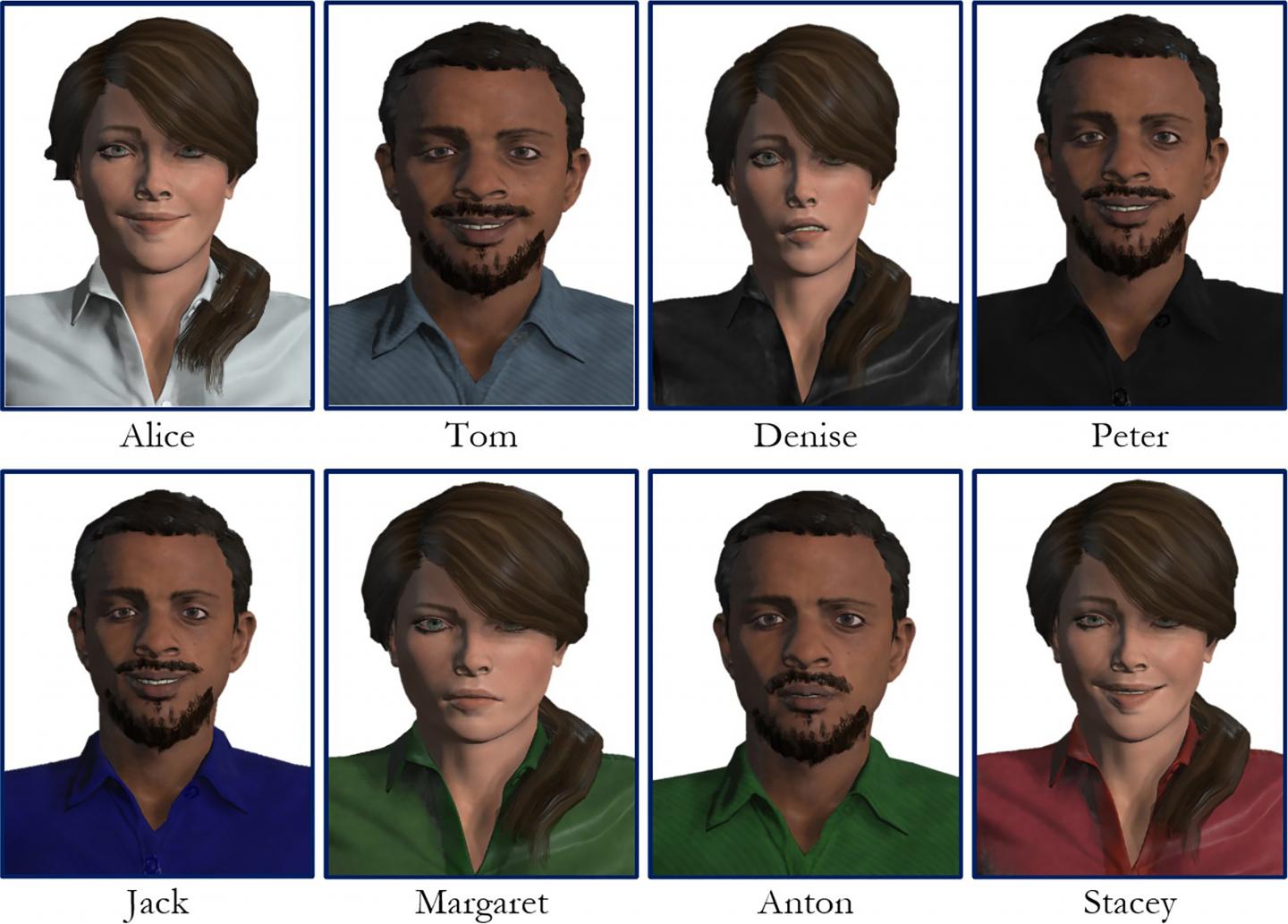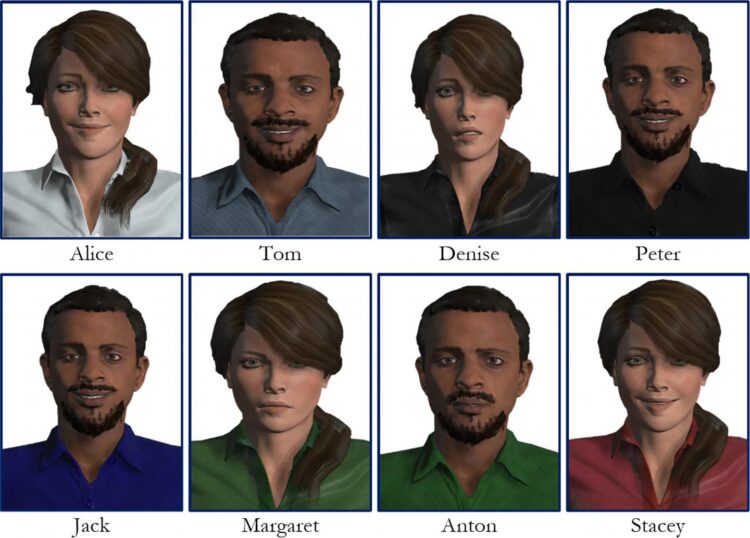Research into the use of virtual and mixed reality technologies for training suggests a wide range of applications

Credit: Gonzalo Suárez, Sungchul Jung, Robert W. Lindeman
A virtual human can be as good as a flesh-and-blood one when it comes to helping people practice new leadership skills. That’s the conclusion from new research published in the journal Frontiers in Virtual Reality that evaluated the effectiveness of computer-generated characters in a training scenario compared to real human role-players in a conventional setting.
Practice-based training techniques, including role-playing, are sometimes used to help improve training outcomes. However, these methods can be expensive to implement, and often require specialized knowledge and even professional actors to create realistic training environments. In addition, some trainees can feel intimidated in these role-playing scenarios.
Researchers at the Human Interface Technology Lab New Zealand at the University of Canterbury wanted to find out if computer-generated role-players in virtual and mixed reality settings could provide similar levels of effectiveness to address some of the drawbacks to traditional training techniques.
In VR, or virtual reality, participants are completely immersed in a digital world. In mixed reality (MR), elements of the digital world are overlaid onto the physical world.
For the study, the researchers designed eight virtual humans, as well as realistic VR and MR environments using commercially available software and hardware. They recruited 30 people, split into three groups, who would undergo training using a well-known leadership model.
One group involved interactions between leadership trainees and two human role-players who acted as subordinates. The second group interacted with virtual human subordinates in a VR world, while the last group met in a MR setting where participants could see virtual humans in a real office space.
Trainees were scored on how well their leadership style matched each situation based on predefined criteria before and after they received coaching. The result: All three groups improved their performance between the pre- and post-training session, while the MR cohort had a statistically significant mean increase.
“The most remarkable finding is that virtual human role-players have been shown to be as effective as real human role-players to support the practice of leadership skills,” said Gonzalo Suarez, lead author of the paper.
Suarez said one possible reason for the better results was that the MR setting blended reality and virtuality, allowing participants to perform in a safe learning environment with known features.
“Participants were able to perceive their real bodies and characteristics of the physical room where the experiment was conducted while interacting with virtual humans,” he noted. “On the other hand, the experience provided by the VR scenario was completely new for the participants.”
Previous studies of extended reality (XR) technologies – a term that refers to all environments using computer-generated graphics and wearables – have shown that they can provide both effective technical training and development of social skills, according to Suarez. One advantage is that XR allows learners to practice their skills and knowledge in multiple scenarios that may be too dangerous or expensive to replicate in the real world.
The current pandemic is another example of how XR technologies could be applied. “Institutions such as schools and universities can greatly benefit by using these technologies,” Suarez noted.
However, there are still barriers to widespread adoption of the technology. For example, the equipment to render high-quality XR experiences can be expensive, and development could require the expertise of several different types of professionals.
Suarez said he believes those obstacles will eventually be overcome. “More sophisticated and automated content creation tools will arise over time, and their implementation will only strengthen the adoption of XR technologies for the creation of more effective and engaging learning experiences,” he said. “In fact, many of these topics are currently being worked on in projects within the HIT Lab NZ.”
###
Media Contact
Mischa Dijkstra
[email protected]
Related Journal Article
http://dx.





